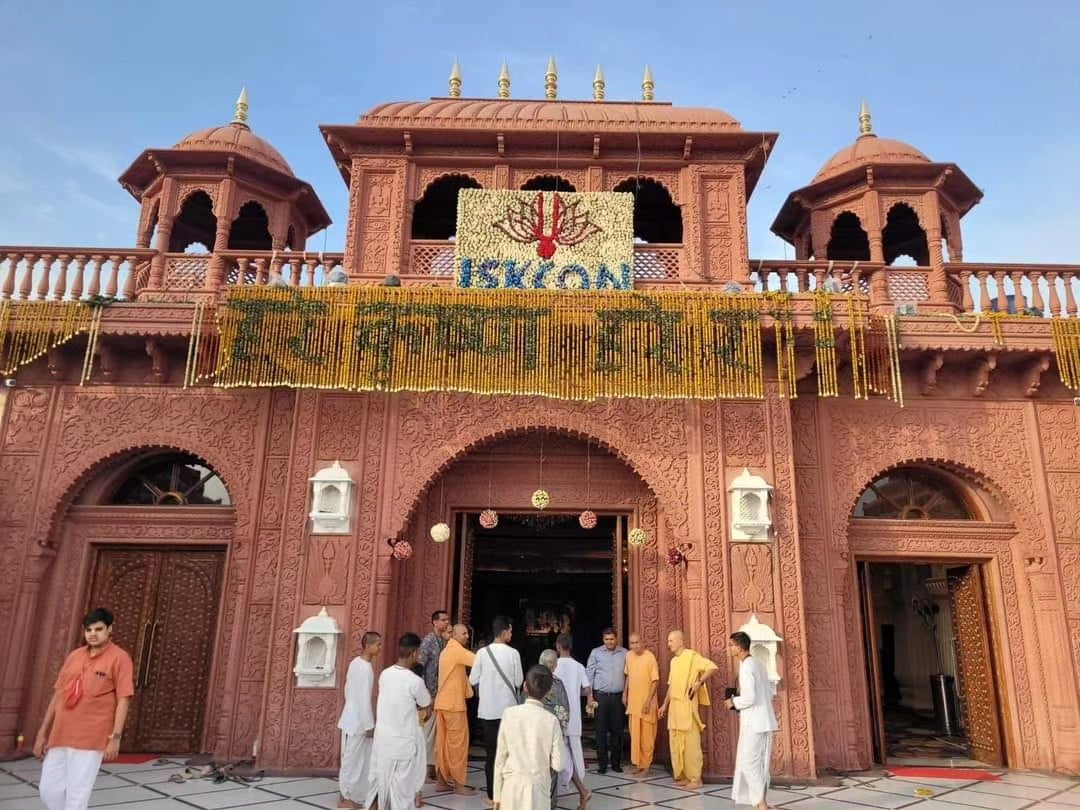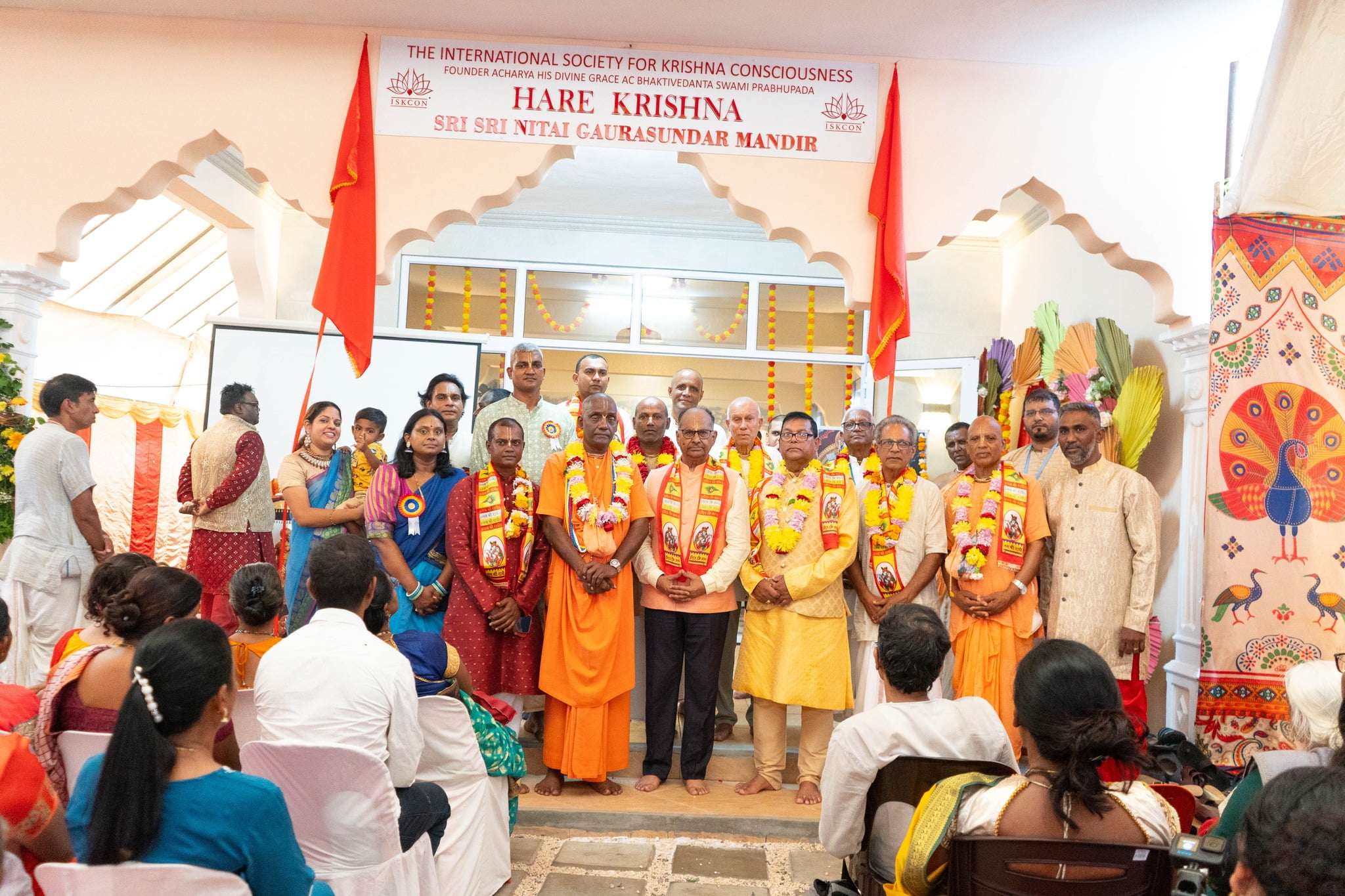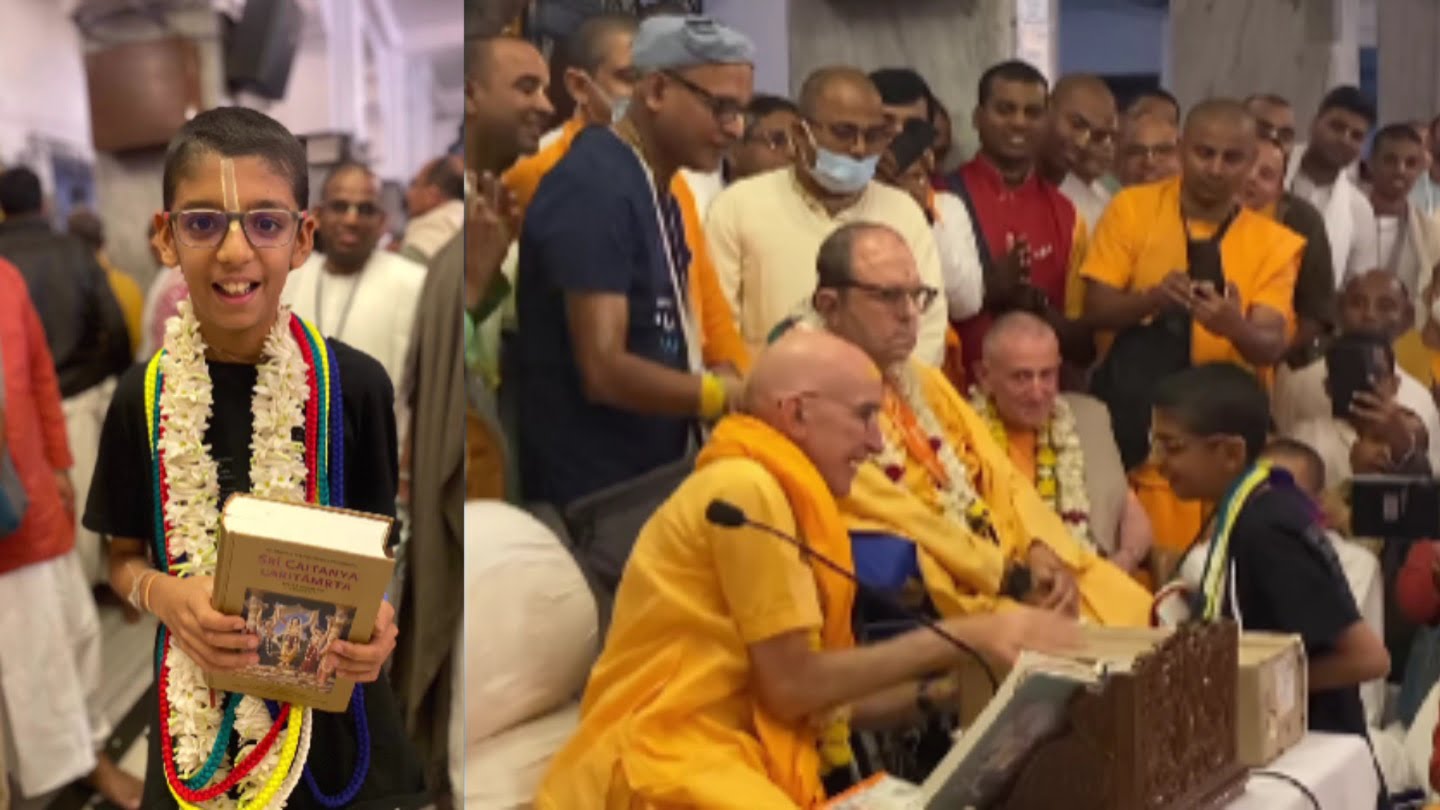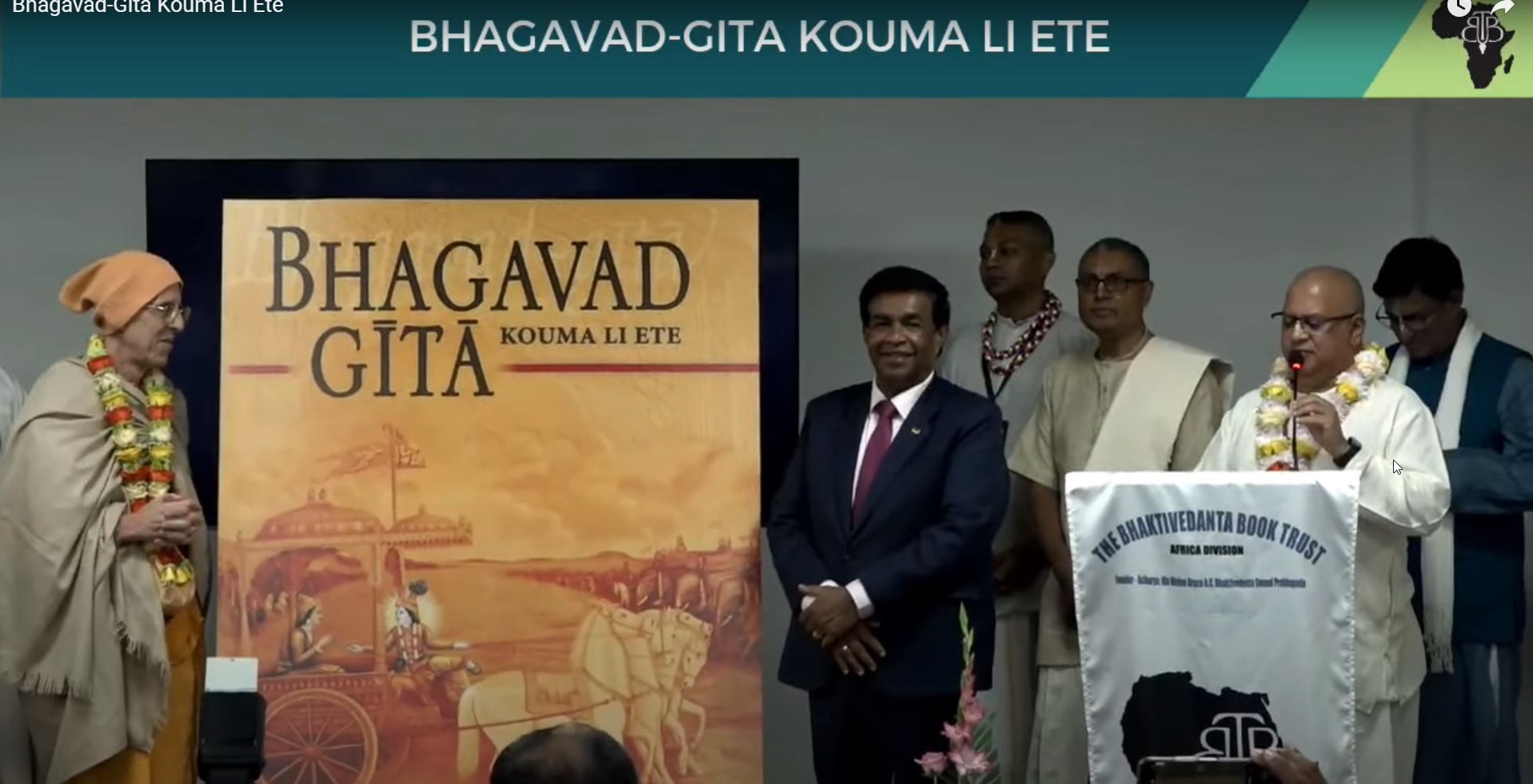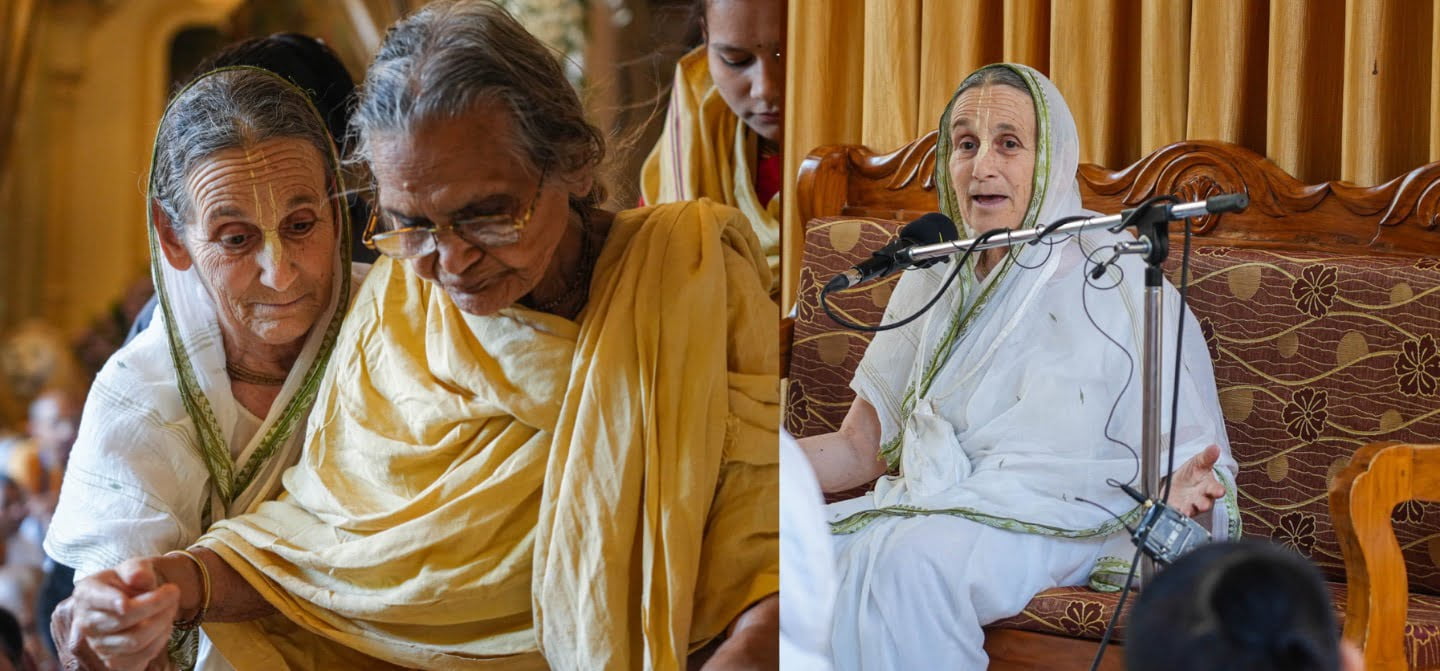The Bhopal Disaster’s Toxic Legacy
By Tattvavit Das | Nov 21, 2014

Indians in the twentieth century, victims of propaganda that urban industrial development would bring them prosperity and well-being, neglected the Vedic principles of God consciousness. The British had established factories, and Jawaharlal Nehru, the first prime minister of independent India, followed that policy, though his spiritually inclined mentor, Mahatma Gandhi, opposed it. In the 1950s, many poor Indians found employment in the nation’s steel mills. But were they any happier or more advanced for having abandoned their God-centered agricultural life? The cities became one of the most heavily industrialized areas in the world, and living conditions worsened.
The Soviets propagandized Indian prosperity linked to industrialization. According to Pravda (10 Nov 1984), “India, a country that until recently knew only the wooden plow, is now among the world’s top ten industrial producers… . India’s pride – the state steel mills at Bhilai, Bokaro, Durgapur, and Raurkela – substantially increased their output [this year] and made it possible to reduce steel imports by one million tons. These and other economic successes of India are directly linked to cooperation with Socialist countries.”
In terms of simple living, economic success means that people have enough food and other basic necessities. Factory workers can’t eat nuts and bolts. All of us depend on what is grown in the fields by God’s mercy. And in terms of the complementary principle of high thinking, or spiritual advancement, it is misguided to measure well-being and prosperity by industrial production.
In fact, industrialization thrives at the cost of human lives, a matter the Indian government ignored during one of the worst industrial disasters in history. On December 3, 1984, about forty metric tons of a toxic gas, methyl isocyanate, leaked from a Union Carbide pesticide plant in Bhopal, India.
U.S. News & World Report (1/14/85) said that a “sign of improved [U.S.-Indian] relations has been the official reaction to the Union Carbide chemical spill at Bhopal that killed at least 2,000 [immediately]. The government, which wants more foreign investment, has discouraged criticism of the U.S. for the accident at the American-owned plant.”
Victims of the deadly Bhopal gas leak have now won a victory, just a few weeks before the disaster’s thirtieth anniversary. In November 2014, five women launched a hunger strike to demand that the Indian government expand its compensation claim against Union Carbide over the catastrophic leak at its plant in Bhopal. Amnesty International says that an Indian official agreed to demands, including a revision of the government’s claim that only about five thousand people were killed and another five thousand disabled. Campaigners say the actual death toll is about twenty-three thousand, with more than half a million more poisoned, ill, deformed, blinded, crippled and so on.
Because India’s leaders rejected her spiritual heritage for materialism, Srila Prabhupada, the guru and founder of the Hare Krishna Movement, wrote articles calling for a return to India’s spiritual culture. Moreover, he said, this culture must not only be revived but distributed worldwide. Telephones, automobiles, radios, and televisions, he argued, are not emblems of prosperity. Real prosperity lies in spiritual understanding, real poverty in ignorance.
Since all suffering is ultimately caused by ignorance, the world’s poverty and misery cannot be eliminated by industrialization but by cultivating spiritual knowledge. Srila Prabhupada argued that even if people have all the facilities and amenities of modern advancement, their unrest and unhappiness will continue until they attain spiritual satisfaction. He reminded his readers that the West had seen only materialism and therefore had never known peace in the twentieth century. If India followed the West, the only results would be strife and war.
Srila Prabhupada’s harsh prediction was borne out around the time of the Bhopal disaster. The unrest of the Sikhs who demanded total political independence from India played a part in the assassination of Indira Gandhi (Nehru’s daughter), after which India experienced a week of fratricidal conflict.
The widespread development and use of lethal chemicals has a detrimental effect on people’s health. According to Oxfam, a British relief agency, in 1982 alone pesticides caused ten thousand deaths and more than three hundred and seventy thousand poisonings in developing nations. More recently, in November 2014, in La Porte, Texas, a toxic chemical leak of methyl mercaptan, which is used to make insecticides, killed four workers at a DuPont plant.
The toxic legacy of the Bhopal gas leak continues, with Union Carbide and its current owner, Dow Chemical, refusing to pay for the clean-up. In 2012, activists rallied in New York to call for Warren Anderson, who was the CEO of Union Carbide during the Bhopal disaster, to face charges in India. Twelve-year-old Akash Viswanath Mehta of the group Kids for a Better Future addressed Anderson directly: “I would like today to appeal to Warren Anderson’s conscience, his guilt and his grief, and ask him to stand beside me. If he is truly haunted by the disaster that happened on his watch, which destroyed an entire community, I ask him to come forward and make a moral statement about what the right thing is for Dow and Union Carbide to do.”
Democracy Now recently reported that Warren Anderson died in Florida on September 2014 at the age of ninety-two. Anderson never faced trial for the disaster, though India tried multiple times to extradite him.
Srila Prabhupada’s Western and Indian disciples preached in India’s factories in the early 1970s. The late Sridhar Swami recalled, “There was Acyutananda Swami, Gargamuni, Tamal Krsna, me, and a few others, including a devotee from Mayapur, Mahendra, who was a very nice young man and a wonderful mrdanga player. We took off on a tour of India organized by H. P. Singhi, Mr. Birla’s right-hand man. They had donated three Jeeps with trailers. We went to a number of factories to chant Hare Krishna and distribute Srila Prabhupada’s books, and we ended up in Bhopal.”
Nowadays the Hare Krishna Movement has a center in Bhopal, which holds festivals and distributes books to the public. The Bhagavad-gita says that human life is meant for spiritual advancement, which is the proven way to raise the quality of our lives. By practicing bhakti-yoga, people attain eternal life after leaving the body, never to take birth again in this world.



